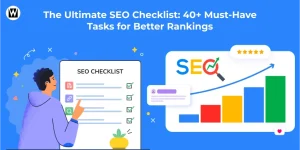SEO for Lawyers: A Comprehensive Guide to Boosting Your Practice

In today’s digital age, law firms must do more than just maintain an online presence to stay competitive. Simply having a website or active social media account is no longer enough to attract and retain clients. With over 90% of people never clicking beyond the first page of search results, the key to visibility lies in mastering SEO for lawyers.
Search Engine Optimization (SEO) is a powerful tool that helps law firms rank higher on search engines like Google, allowing potential clients to find them quickly and easily. Whether you’re new to SEO or looking to refine your strategy, this guide offers a comprehensive overview, from keyword research and content optimization to local SEO and backlink strategies.
By the end of this guide, you’ll gain:
- A solid understanding of what SEO for law firms entails.
- Tactical strategies for optimizing your website to rank higher.
- Insights into key Google ranking factors that influence your site’s visibility.
- Practical tips for implementing both on-page and off-page SEO techniques.
- Tools and resources you will need to perform SEO on Your Attorney’s Website
We’ll also explore the importance of local SEO, the benefits of combining organic SEO with pay-per-click (PPC) campaigns, and provide a checklist to ensure your law firm is on track to SEO success. Whether you’re an attorney, lawyer, or part of a legal team, this guide will equip you with everything you need to implement SEO and grow your practice online.
Let’s dive in and discover how to make your law firm’s website stand out in today’s competitive digital landscape.
Check out our detailed guide on How Much Does Law Firm Website Design Cost?
- Can SEO Really Benefit Lawyers?
- Critical Google Ranking Factors to Consider When Marketing a Law Firm Website
- Simple Steps to Boost Your Law Firm’s SEO
- Quick SEO Checklist for Optimizing Law Firm Websites
- Additional Website Marketing Tips for Attorneys
- Must-Have Tools and Resources to Do SEO for Law Firm Websites
- SEO for Law Firms: Common Questions and Expert Answers
Can SEO Really Benefit Lawyers?
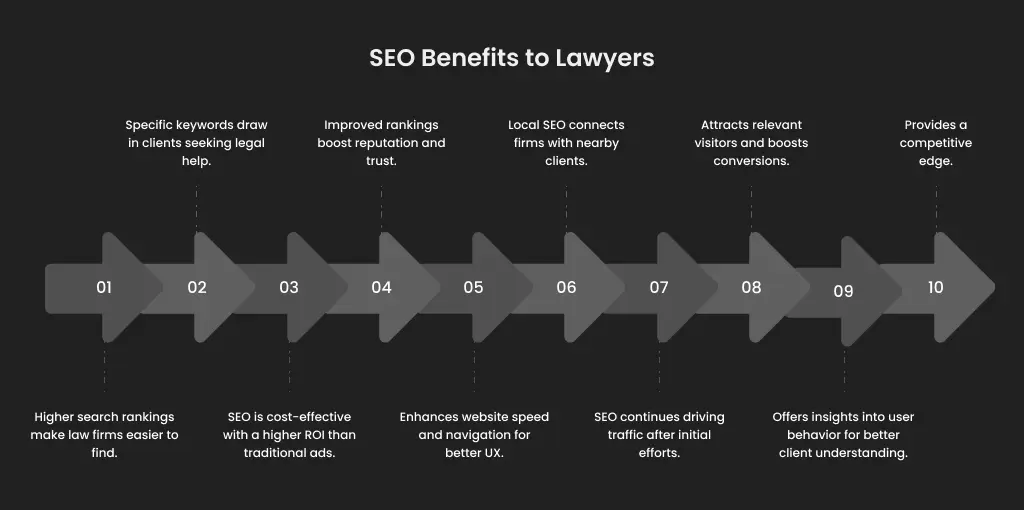
Absolutely, SEO can significantly benefit lawyers when executed correctly.
Here are some benefits of SEO for Lawyers:
- SEO helps law firms appear higher in search results, making it easier for potential clients to find them.
- Focusing on specific keywords draws in clients who are looking for legal help.
- SEO is often less expensive than traditional advertising and provides a higher return on investment.
- Better search rankings increase a law firm’s reputation, building trust with prospective clients.
- SEO improves website speed and navigation, leading to a better user experience.
- Local SEO allows law firms to connect with clients nearby.
- Good SEO practices keep bringing in traffic even after the initial efforts.
- A well-optimized website attracts more relevant visitors and improves conversion rates.
- SEO tools provide insights into user behavior, helping law firms better understand their clients.
- Strong SEO strategies give law firms a competitive edge.
In today’s competitive digital landscape, understanding how to elevate your law firm in organic search results is crucial. While numerous vendors offer SEO services for lawyers, there are no guaranteed methods to achieve the top ranking.
However, by grasping the key factors that search engines use to evaluate website value, law firms can improve their chances of appearing on the first page of search results.
Here We have outlined some important ranking factors to help your law firm’s website achieve higher visibility on Google.
Critical Google Ranking Factors to Consider When Marketing a Law Firm Website
On-Page SEO Factors for Lawyers
Title Tags: Ensure each page has a unique, descriptive Meta title that includes relevant keywords and accurately reflects the content.
Meta Descriptions: Write compelling meta descriptions for each page to encourage click-throughs from search results. Include keywords and keep it within 150-160 characters.
Don’t worry, we’re here to help you navigate the complexities of SEO and ensure your law firm website stands out in the competitive legal landscape! Simply tap the button below.
Off-Page SEO Essentials for Law Practices
Social Media Engagement: Active participation on social media platforms can drive traffic to your website and increase brand awareness. Through effective social media marketing, share valuable content, engage with followers, and participate in relevant discussions.
Brand Mentions: Keep track of online mentions of your law firm to boost your branding efforts. Engaging with these mentions and converting them into links can enhance your off-page SEO.
Local SEO for Attorneys
Local SEO services are essential for law firms, as they enhance visibility among potential clients actively searching for legal help in their area. By leveraging these services to optimize for local search, your firm can attract high-intent clients who are more likely to convert due to their proximity and specific legal needs.
Local SEO is especially crucial for law firm websites aiming to stand out in nearby searches. Below are key Local SEO factors specifically tailored for law firms:
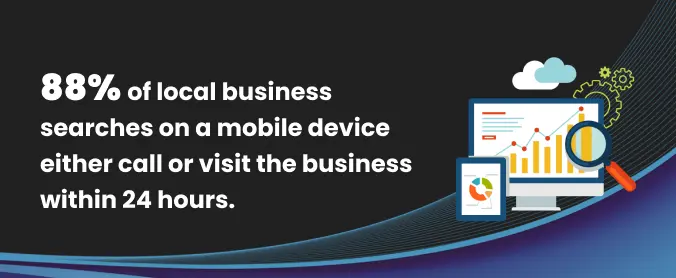
- NAP Consistency
- Local Keywords
- Localized Content
- Mobile Optimization
- Geotagging in Media
- Local Backlinks
- Online Reviews
- Location Pages
- Local Structured Data (JSON-LD)
- Social Media Localization
Technical SEO Factors
- Mobile-Friendly Design
- SSL Certificate (HTTPS)
- XML Sitemap
- Robots.txt File
- Crawlability & Indexability
- Canonical Tags
- Broken Links Fixing
- Image Optimization (Alt Text & Compression)
- Page Depth & Internal Linking
- URL Structure
- Duplicate Content Management
- Core Web Vitals
- 404 Error Handling
Quality Content
Content Quality: Create high-quality, informative, and engaging content that meets user intent. Aim for comprehensive coverage of the topic.
Regular Blog Updates: Regular blog updates keep your law firm website fresh, engaging, and relevant to both users and search engines.
Client Case Studies and Success Stories: Showcase case studies and results to highlight your firm’s expertise and success.
Multimedia Content (Videos, Images, Infographics): Include multimedia content like images, videos and infographics to simplify complex legal concepts and improve content shareability.
Answer User Inquiries: Ensure your content directly answers the search queries or concerns of your audience.
Keyword Optimization: Optimize your content with relevant keywords for better search engine visibility.
Practice Area Pages: Develop detailed pages for each practice area to help potential clients find specific legal services.
Localized Content: Create content specific to your geographic location to attract local clients.
FAQ Section: Address common legal questions in an FAQ section to improve user engagement and SEO.
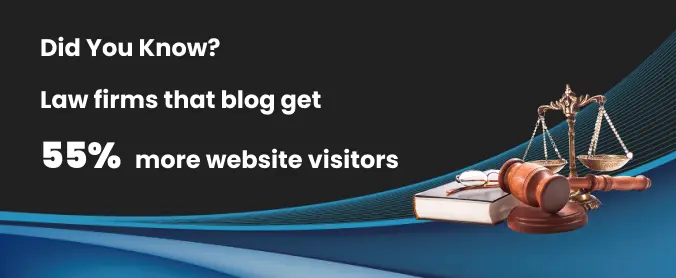
E-E-A-T (Experience, Expertise, Authority, Trustworthiness)
User Experience with Core Web Vitals
Mobile Optimization
With a growing number of clients searching for legal services on mobile devices, ensuring your website is mobile-friendly is vital. A responsive design improves usability and accessibility, leading to higher engagement rates and better search engine rankings.
Simple Steps to Boost Your Law Firm’s SEO
In the current online environment, establishing a strong online presence is crucial for law firms for increasing law firm website’s visibility and reaching the right audience. By taking specific actions, you can boost your search rankings and bring more visitors to your attorney site. Here are ten practical steps to enhance your website’s SEO.
Step 1: Conduct keyword research
Step 2: Optimize title tags, meta descriptions, headers, and URLs.
Step 3: Create engaging, informative content.
Step 4: Improve website loading speed
Step 5: Ensure your site is mobile-friendly.
Step 6: Build quality backlinks
Step 7: Optimize images with descriptive file names and alt text.
Step 8: Implement local SEO and optimize your Google Business Profile.
Step 9: Regularly update your blog with relevant articles.
Step 10: Monitor performance of Your Attorney Website
A solid SEO strategy not only increases visibility and drives organic traffic but also helps establish your firm as a credible authority in your practice area, making it easier for potential clients to find and trust your services.
Quick SEO Checklist for Optimizing Law Firm Websites
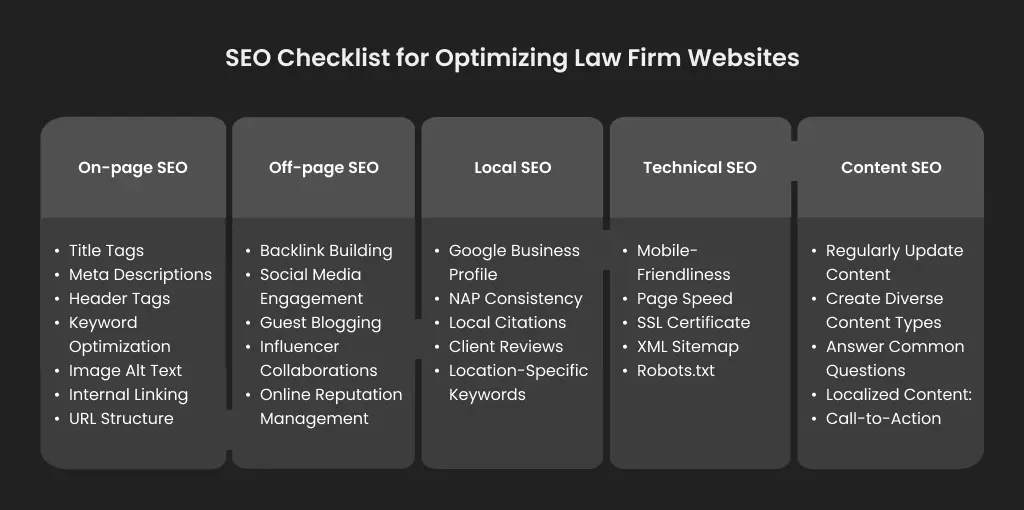
Additional Website Marketing Tips for Attorneys
To successfully market your law firm online and reach potential clients, it’s crucial to adopt a variety of marketing strategies that go beyond SEO alone. Here are ten practical website marketing tips for attorneys to boost your online visibility and foster engagement:
- Leverage Social Media: Use platforms like Facebook, LinkedIn, and Instagram to share content, engage with potential clients, and promote your services.
- Create Video Content: Produce informative videos explaining legal concepts, client testimonials, or firm introductions to enhance engagement and visibility.
- Utilize Email Marketing: Build a mailing list and send regular newsletters with valuable legal insights, updates, and firm news to keep clients informed and engaged.
- Host Webinars: Offer free webinars on relevant legal topics to showcase your expertise and attract potential clients.
- Network Online: Join legal forums, groups, and communities to connect with potential clients and other professionals in the industry.
- Publish Case Studies: Share detailed case studies on your website to demonstrate your success and expertise in handling various legal matters.
- Participate in Local Events: Engage in community events, sponsor local activities, or provide legal workshops to build rapport and increase brand visibility.
- Implement Strong Calls-to-Action: Use clear and compelling calls-to-action throughout your website to guide visitors toward scheduling consultations or contacting your firm.
- Offer Free Resources: Create downloadable guides, checklists, or templates that provide value to potential clients while capturing their contact information.
- Engage in Reputation Management: Regularly monitor and respond to online reviews to manage your firm’s reputation and build trust with potential clients.
Must-Have Tools and Resources to Do SEO for Law Firm Websites
- Keyword Research: Utilize tools like Google Keyword Planner, SEMrush, Ahrefs, or KeywordTool.io to discover relevant, high-traffic keywords that can drive potential clients to your law firm’s website.
- SEO Analytics: Employ Google Analytics, Google Search Console, or Moz to gain valuable insights into your website’s performance and evaluate the effectiveness of your SEO strategies.
- Meta Tags Optimization: Use the Google SERP Snippet Optimization Tool by Higher Visibility or Portent’s SERP Preview Tool to ensure your meta titles and descriptions are optimized for the right length and effectiveness.
- Site Speed: Leverage Google PageSpeed Insights to receive actionable recommendations for improving your website’s loading speed, which is crucial for enhancing user experience and SEO.
- Backlink Analysis: Tools like SEMrush, Ahrefs, or Moz’s Link Explorer can assist in monitoring your backlink profile, helping you identify both beneficial and harmful links that impact your site’s authority.
- Local SEO: Optimize your law firm’s visibility in local search results by using Google My Business, BrightLocal, or Moz Local to manage your listings across various directories.
- Learning Resources: Explore platforms such as Backlinko, the Moz Blog, SEMrush Academy, and Google’s Digital Garage, which offer an abundance of free content, tutorials, and courses to enhance your understanding and implementation of SEO.
Check our detailed blog on 32 Best Website Marketing Tools!
SEO for Law Firms: Common Questions and Expert Answers
Can I do SEO on my own for my law firm website?
Yes, you can manage basic SEO on your own, but it may require time and effort to stay updated on best practices.
Should I hire an SEO agency or manage SEO in-house?
SEO agencies bring extensive knowledge and resources, whereas in-house teams may lack expertise in certain areas, as effective SEO requires collaboration across design, development, and content creation.
What are the costs of performing SEO for law firms?
The cost of SEO for law firms typically ranges from $1000 to $10,000+ per month, depending on the level of services and competition.
How long does it take to see results from SEO efforts?
Generally, it can take 3 to 6 months to see significant results from SEO efforts for a law firm, depending on the competitiveness of your keywords and industry.
What metrics should I track to measure the success of my SEO efforts?
Track metrics such as organic traffic, keyword rankings, conversion rates, and backlinks to assess the effectiveness of your SEO strategies for your law firm or legal practice.
How often should I review and update my SEO strategy?
Regularly review your law firm’s SEO strategy at least quarterly and adjust as needed based on performance metrics and industry changes affecting lawyers.
What common mistakes should I avoid when implementing SEO for my law firm?
When doing SEO for your law firm, avoid these common mistakes: ignoring local SEO, not optimizing for mobile, using the wrong keywords, failing to monitor performance metrics, and having inconsistent NAP (Name, Address, Phone) details on different platforms.
Ravi Makhija, the visionary Founder and CEO of WebyKing, is a seasoned digital marketing strategist and web technology expert with over a decade of experience. Under his leadership, WebyKing has evolved into a premier full service web and marketing agency, delivering innovative solutions that drive online success. Ravi’s deep understanding of the digital landscape combined with his passion for cutting-edge technologies empowers him to consistently exceed client expectations and deliver results that matter.


